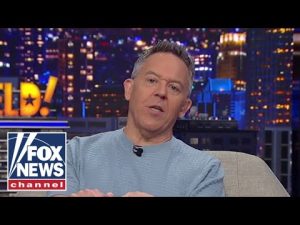In a bold move that seems to have all the makings of a classic Trumpian maneuver, President Trump has once again taken the world stage by storm. This time, he’s orchestrating not just one but three major trade deals, showing that he’s not even close to being done restructuring how America deals with the rest of the world. With a wave of his proverbial wand, he’s managed to engage Japan, the European Union, Canada, Mexico, and China in negotiations, as if he’s hosting a massive trade party and everyone’s dying to get on the guest list.
Japan is highlighted as the big fish in this impressive catch of deals. Despite some political turmoil back home, Japan decided that trading with the U.S. deserves priority. This might be news to some analysts on Wall Street who, not too long ago, predicted that tariffs would crush us under their weight. It’s a lesson straight out of the “Art of the Deal” — aim high, and don’t back down. As it turns out, Japan’s stock market is having a field day with this development, cheering on the deal like it’s a holiday.
For America, these agreements aren’t just about selling cars overseas or boosting agriculture; they’re about setting a new standard in trade that insists on fairness. So when you hear about Indonesia and the Philippines stepping up to the plate, it’s clear the administration means business. No more sneaky shortcuts or backdoor trading through other nations. It’s time to rebuild the industrial base, and apparently, that’s something even the skeptics have to wrestle with now. America, it seems, is as much a place of opportunity as ever, with tech investments and industry cravings drawing foreign capital like bees to honey.
Now, let’s talk about the European Union. They’re in talks with high expectations and big numbers ready to go—30 billion, to be exact. It’s a poker game on a global scale, and everyone knows the stakes. The trade war psychology that had folks biting their nails seems outdated. It’s a new era where tariffs are no longer the boogeyman we’re supposed to fear, as they usher in the possibility of revenue and balancing budgets. Even the “Wall Street Journal” and friends seem to nod in reluctant agreement. The uncertainty businesses once dreaded now seems to be morphing into a calculable risk they’re willing to take.
In the end, while critics might tire themselves fretting about potential downsides, it’s hard to deny the impact of these deals. Sure, it’s a bit theatrical, but in a world where hesitation often rules, there’s something to be said for decisively moving pieces on the chessboard. It seems President Trump has not only invited foreign leaders to the table but has set the agenda for what a fair trade future could look like: bolder, bigger, and definitely more American.







